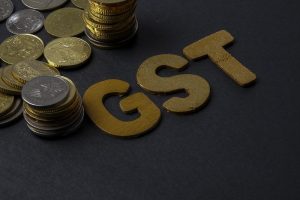
As the Centre pushes ahead with its next wave of tax reforms, finance minister Nirmala Sitharaman will brief the Goods and Services Tax (GST) Council’s groups of ministers (GoMs) in New Delhi this week on rationalizing tax rates and phasing out the compensation cess, two persons informed about the development said.
Sitharaman is expected to brief the three separate ministerial groups of the GST Council that are scheduled to meet in the capital on Wednesday and Thursday. The three groups pertain to rate rejig, insurance and compensation cess.
“The meetings scheduled for the next two days are crucial in implementing GST reforms,” said one of the persons cited above on condition of not being named.
The development highlights the urgency with which the central government is pursuing the tax reform that is expected to give a boost to consumption demand in the economy. Notably, Sitharaman also chairs the GST Council.
The ministerial group on rate rationalisation led by Bihar’s deputy chief minister Samrat Chaudhary and the group on compensation cess led by Union minister of state for finance Pankaj Chaudhary will examine the proposals for finalising their recommendations to the GST Council, which is expected to meet sometime in September, the second person quoted above said.
Combined with the income tax relief offered to individuals in the budget this year, an above-normal monsoon that is expected to support rural incomes, and interest rate cuts by the RBI, the proposed GST rate reduction is expected to help in stimulating the economy.
The central government is also working on other reforms that could accelerate economic growth. Prime Minister Narendra Modi on Monday held meetings with his senior cabinet colleagues and economists to discuss next-generation reforms, Mint reported on Tuesday.
As per the Centre’s proposals circulated among the ministerial groups, the 12% and 28% GST slabs will be dropped, a new 40% slab will be introduced for a handful of products, and the compensation cess will be done away with.
This restructuring may lead to some short-term revenue loss, which the central government expects will be made up by the boost in demand for goods and services.
According to a note by City Research, the annual fiscal cost could be ₹1.1-1.2 trillion, with around two-thirds of this burden eventually falling on states.
Queries emailed to the finance ministry and to the GST Council secretariat on Tuesday seeking comments for the story remained unanswered.


